Workshop with Local Teachers
Teacher training is one of the main goals of my fellowship. Although I do that at the university as well as partner with the Ugandan National English Language Teachers Association (UNELTA), I wanted to offer something that was open to community teachers around where I teach and live. I had planned on inviting one or two neighboring schools, but the Dean of Education opened the invitation to seven different local primary and secondary schools. I was thrilled! We invited teachers of English language to attend. I also invited the teacher trainers from UNELTA as well as the teacher at AidChild Leadership Institute (where I teach writing classes). All education faculty from the university was also invited. I was excited and appreciative for 40 attendees.
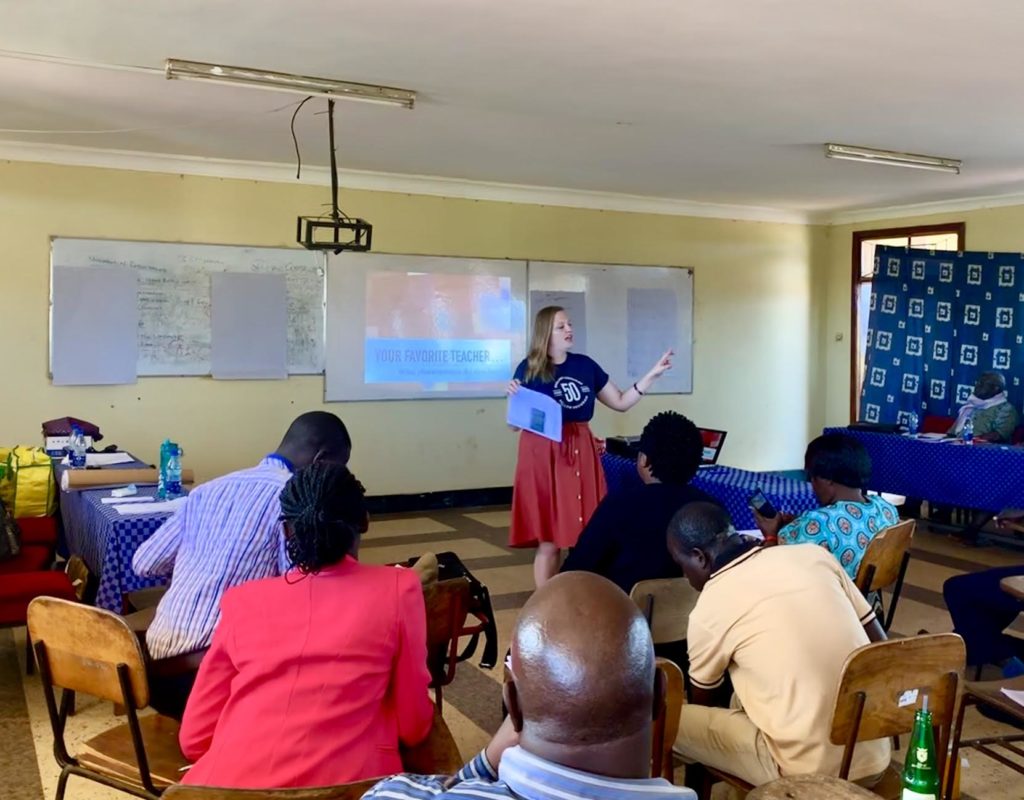
I was also excited to have my regional officer from the US Department of State approve the English Language Fellow from Rwanda to come to Uganda and help with the workshop. She led the session on literacy development for primary-secondary English education.
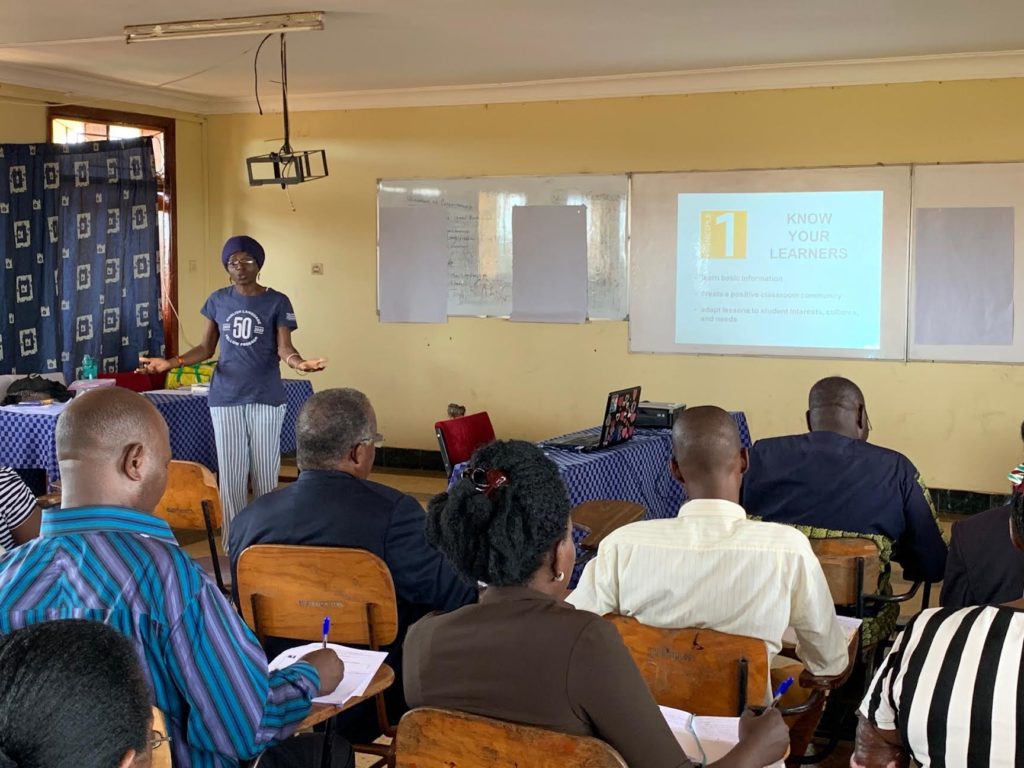
Our main sessions included: TESOL’s 6 Principles of Exemplary Teaching of English Learners, Literacy Development, and Teacher-Learner Relationships: Creating a positive classroom environment
Of course we started with an ice-breaker! Would we be teachers if we didn’t?? We used an ice-breaker that we participated in our training in Washington D.C. It’s called “sole-mate”. You have to walk around and find someone with a similar sole or shoe as yours. Then, discuss the most interesting place your soles have taken you. It started with eye-rolls but ended with many smiles and laughs. I think the most important aspect of ice-breakers is to explain how else teachers could use the activity. So, that could simply be a fun way to pair up students for any partner activity.
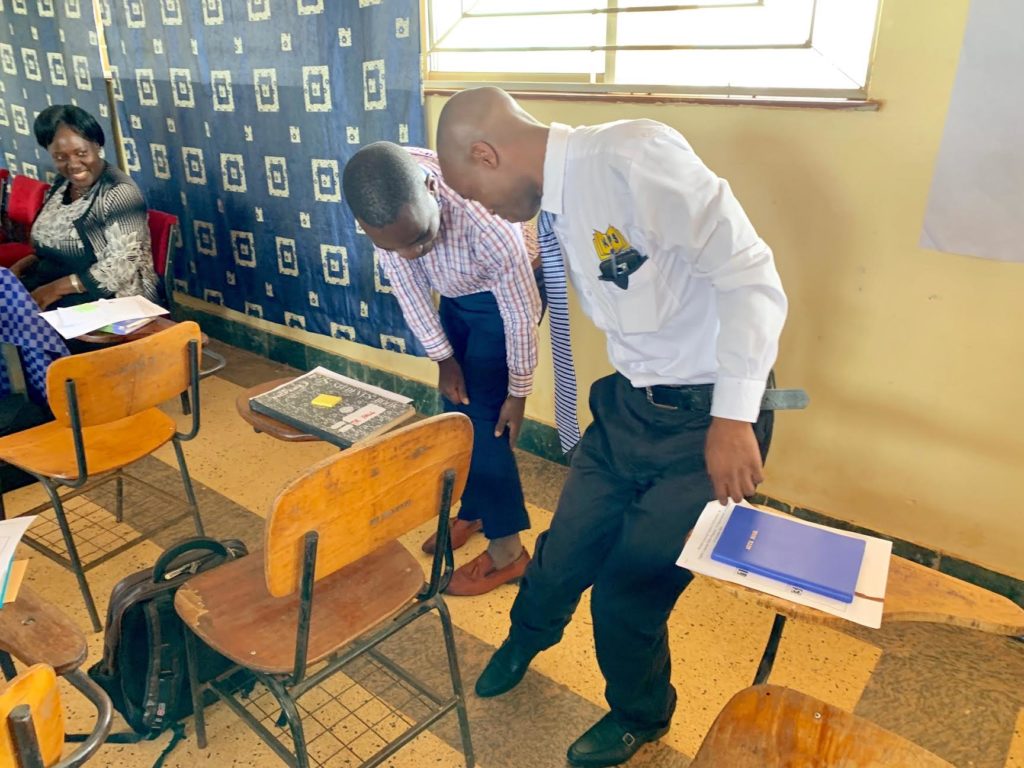
The first session was led by both Danielle (Fellow Rwanda) and myself. We were encouraged by the quick engagement from the teachers. They had comments, questions, took notes, and discussed together at length. They had even noted that they wish they had more time to discuss and collaborate on how to use the principles in their own classes. We had them do this with one or two of the principles at posters around the room, but it was clear that they wanted to dig deeper into the 6 principles.
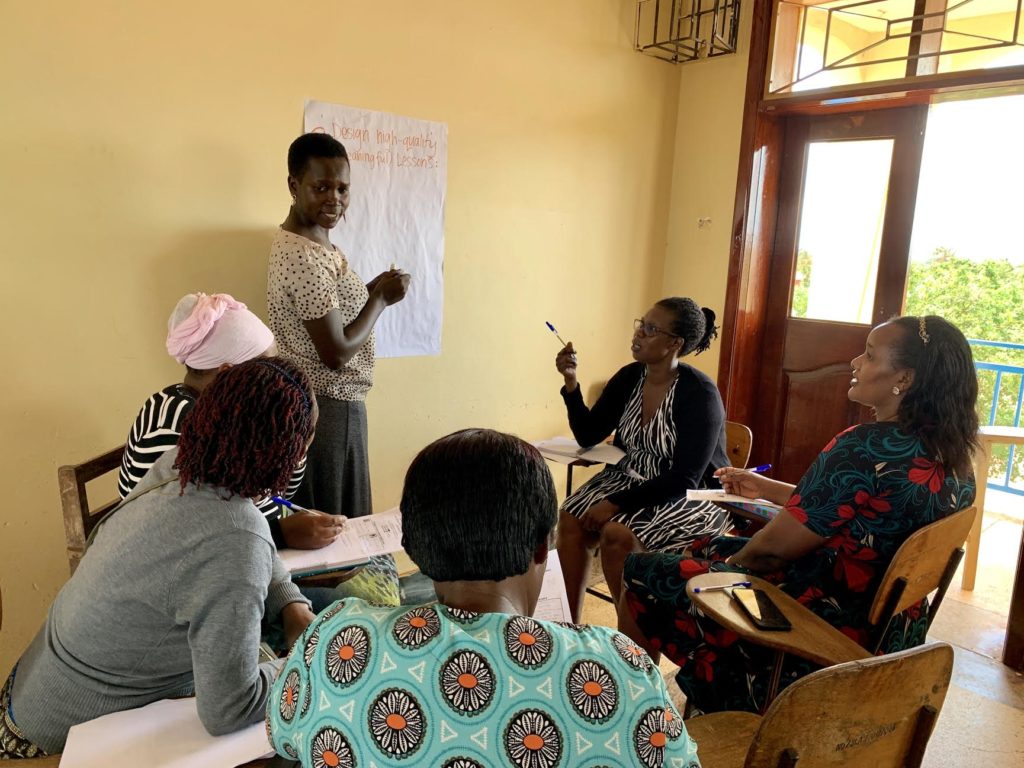
For literacy development, Danielle provided a pamphlet of poems to all attendees and a list of activities for using poetry in the classroom. They also went through an activity called “two-minute-story” for vocabulary practice and review that can be used with any text in the classroom. The teachers were pretty chaotic and confused at first, but once they got the hang of it, they loved the activity! I’m sure a few of them will use this in their classroom.
The activity: After introducing vocabulary & reading a text, make sets of vocabulary cards for groups. Give one set to each group. (There should be enough cards for each student to have one). One student starts, creating a sentence with their word. The next student must add onto the story using their word in the sentence. They continue around the group, making a silly story with their words. A key note: they should not be copying the text or story they read earlier. They are creating new sentences and stories with the vocabulary. Danielle had explained that if they could record their stories and then trade, and have students listen and write the stories, this further encourages speaking, listening, and writing skills.
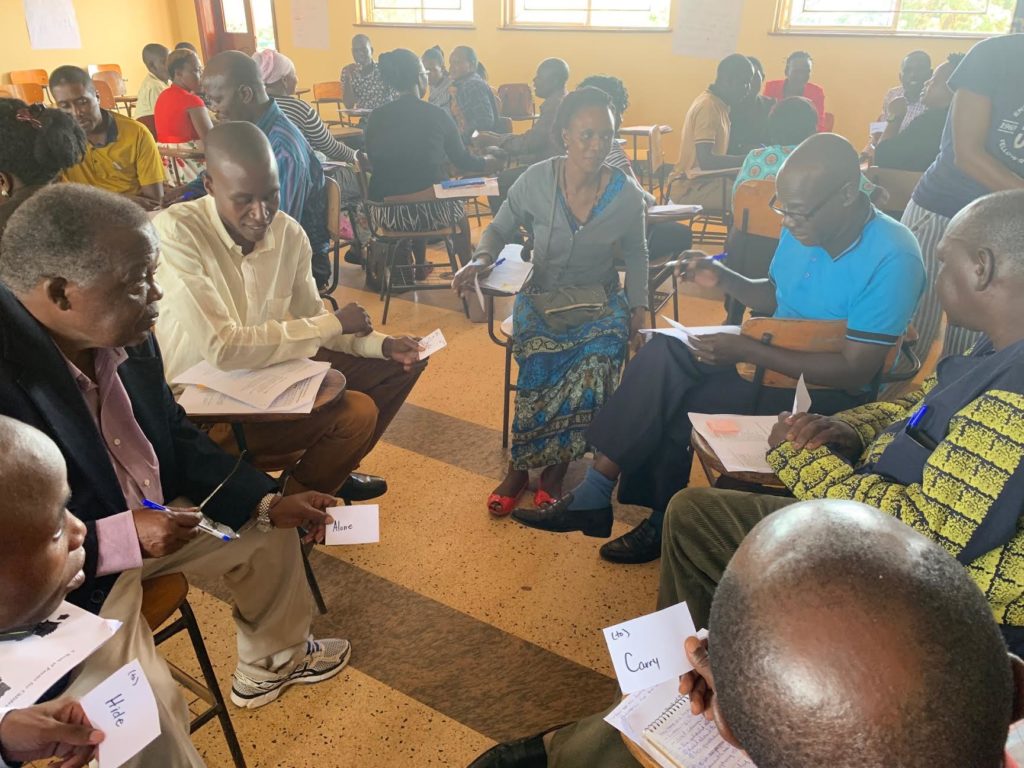
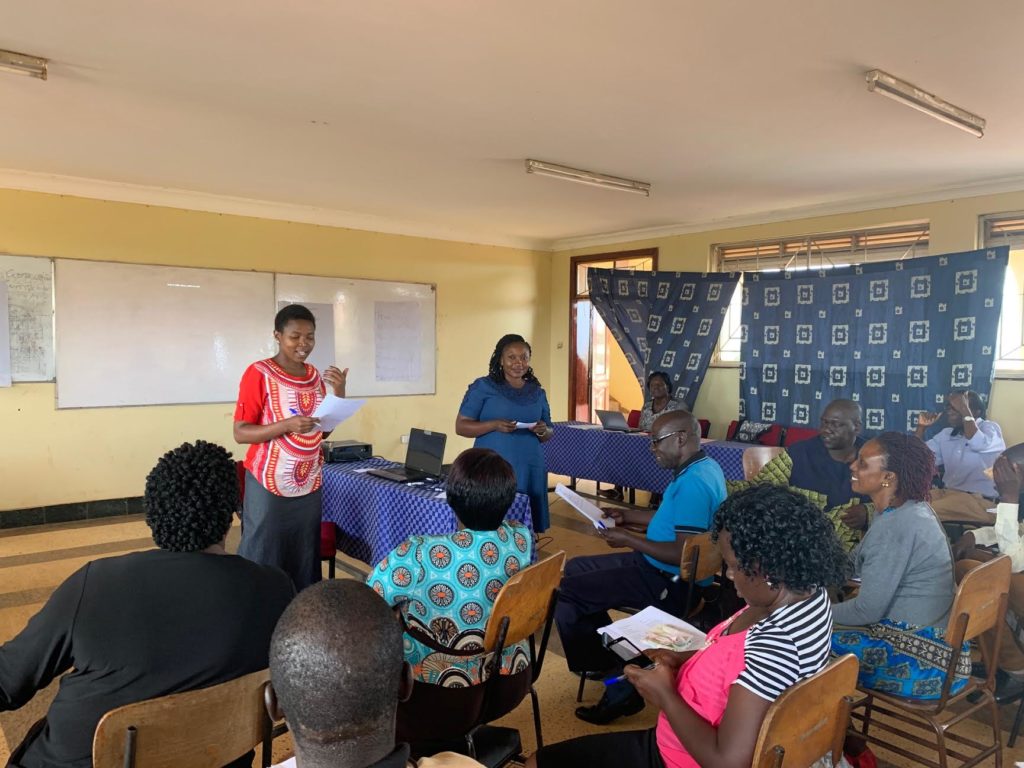
The last session was led by myself and focused on Teacher-Learner relationships. This is one topic I’m particularly interested in and want to continue observing and researching. Two of the 6 principles are about “knowing your students” and “Creating a community for learning” and I wanted to expand on these principles. I started with a few quotes and discussion about what students desire to hear and feel from their teachers: “I believe in you, You have a purpose, and How are you?”. What I really wanted to talk about was an idea called “The Trauma Informed Teacher”. Something I’ve observed in Uganda (as well as heard from many teachers), is the struggle of outside issues that come into the classroom: poverty, domestic abuse, gender inequalities, girls missing school every month due to their menstrual cycle, illness, death in the family, orphans, and so on. Plus, teachers have huge classes here. One secondary teacher told me she’s never had a class that had less than 100 students. So how can I possibly tell these teachers to “know their students” and create a safe space? Well, I gave some examples of how they can practically “survey” and try to speak to individual students in large classrooms. But, I also tried to focus on the idea of “Behavior is communication”. Research shows when students experience trauma, they are 6x more likely to have behavioral issues in the classroom, drop out rates increase, and literacy rates decrease. We looked at some examples of how teachers could change their mindset to bad behavior in the classroom. Then, we discussed practical ways to address and speak to the students who exhibit bad behavior (or simply unexpected, new behavior).
I’ve written a post about some of my behavioral management methods & will post it soon!
Overall I believe the workshop was a success. Teachers had many questions & truly helped me understand more of their context as well. I hope to continue observing their classes in the local schools so that I can better prepare trainings & resources.
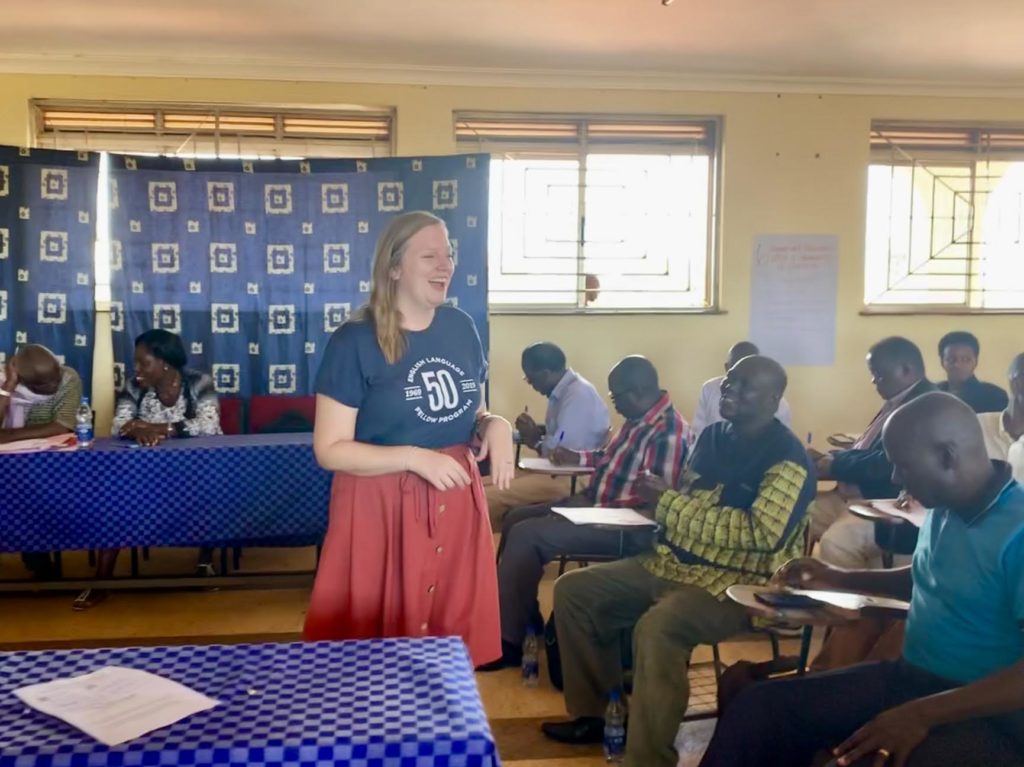
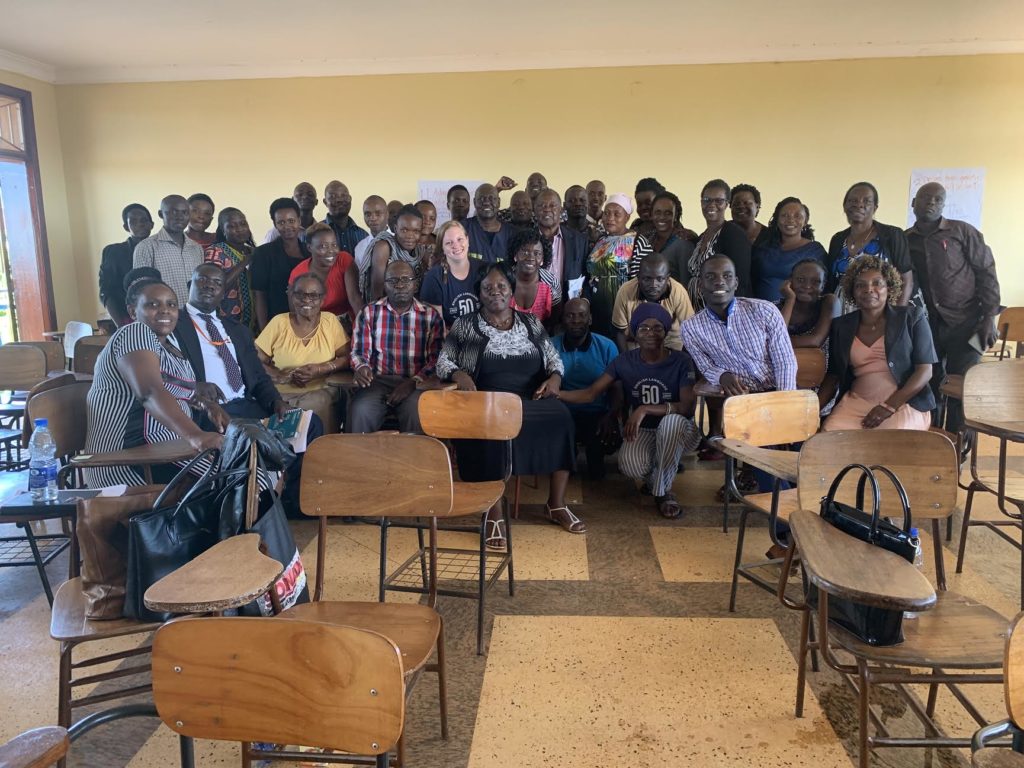
Happy Teaching 🙂
